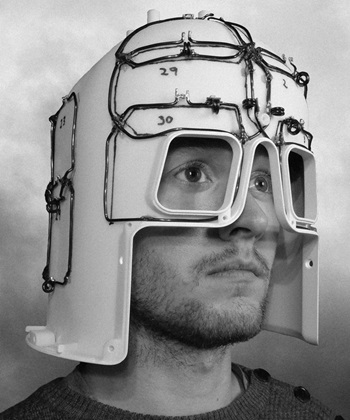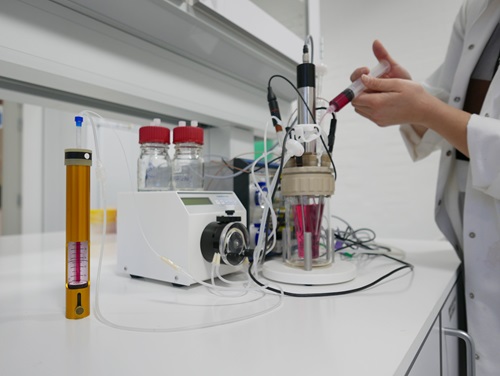Videnskab.dk brings a selection of photos from the Danish National Research Foundation's 2018 photo competition; one is from the HYPERMAG Center of Excellence.
HYPERMAG is funded by Danish National Research Foundation. This year the Foundation initiated a new tradition, an annual photo competition. All centers were invited to contribute photos documenting scientific results in a manner that raises the curiosity of the beholder, works as an enticing entry point to the story behind the science, and has aesthetic merit.
Danish popular science news site Videnskab.dk has selected 14 of the incoming photos, including the three winners. HYPERMAG sent in four contributions, and one of them is featured in their article - and above. Congratulations to the winners. See all the selected photos here: https://videnskab.dk/naturvidenskab/psykedelisk-blad-og-fiber-maane-her-er-danske-grundforskeres-bedste-billeder.
The HYPERMAG photo (no. 9 in the gallery) shows a 'wizard pot' that will solve a fundamental scientific problem: Hyperpolarization dramatically increases the sensitivity of Magnetic Resonance and can change fundamentally how we investigate the inner workings of the human body. However, the present lifetime of hyperpolarization restricts the research effort and the resulting applications. The photo shows frozen radicals immersed in liquid nitrogen and irradiated with UV-light. The observed phosphorescence is proof of changes in the electron spins. We can use this to turn electron spins on and off; a potential paradigm shift in our field, as we will be able to maintain hyperpolarization for a substantially longer time.
Photographers are Postdoc Andrea Capozzi and PhD student Christine Pepke Gunnarsson.
You can peruse our other contributions to the photo competition below:

Weapons of war against disease (above)
Minute changes in the magnetization of various nuclei in our body tell a story of either sickness or health. With Hyperpolarized Metabolic Magnetic Resonance, we are able to discover these changes and track them over time. The photo shows, what is to be, the first 32-channel head coil for 13C Hyperpolarized Magnetic Resonance Imaging for patient use in Denmark. The head coil will yield profound insights into the inner workings of the human brain, for example early diagnosis and evaluation of the efficacy of cancer treatment through non-invasive monitoring of the metabolism of cancerous cells.
Photographer
PhD student Daniel Højrup Johansen

Hyperpolarized Metabolic Nuclear Magnetic Resonance quantifies the real-time metabolism of living systems (above)
The newly developed bioreactor setup gives full control of cell environment; nutrition, pH, oxygen levels, temperature. We can nurture or stress living cells and follow the effect through their metabolic response, with a level of detail not achieved by other non-invasive methods. This is highly relevant for biochemical investigations in many research fields. An example is assessment of the efficiency of anti-cancer agents on cancerous cells, increasing in severity from primary cancer cells to cells from a metastasized cancer, since each type has unique metabolic responses.
Photographers
PhD students Andreas Boeg and Ronja Malinowski
Towards precision medicine (above)
New methods require cutting-edge dedicated hardware with unique and customized capabilities. Scanner imaging using Hyperpolarized Metabolic Magnetic Resonance can provide biochemical fingerprints of cancer. This will help doctors make more accurate diagnoses. The new knowledge can translate into patient specific treatment plans where individual response is monitored in real-time and non-invasively. A newly developed radio-frequency transmitter and multi-channel receiver have together with fast imaging methods vastly improved image quality. This setup will be used in the first Danish clinical studies of Hyperpolarized Metabolic Magnetic Resonance Imaging; initially on patients with pancreatic cancer.
Photographers
PhD student Rie Beck Hansen and Postdoc Juan Diego Sanchez Heredia